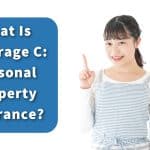Between policy cancellations, unpaid claims, and rising premiums, Florida homeowners have been feeling the pinch for years, culminating in what has been called the “Florida Home Insurance Crisis.”
But thankfully, new legislation hopes to reverse the collapse of the insurance market and give Florida property owners better options.
Florida Senate Bill 2-A was signed into law on December 16, 2022, but Floridians still aren’t aware of how this will affect them.
This article is our attempt to unmask the new changes and explain how they might affect Florida homeowners and insurers.
Florida’s Home Insurance Crisis
Florida’s home insurance crisis is often blamed solely on our high occurrence of hurricanes, but this only tells part of the story.
What’s really to blame is fraud.
We’ve written at length about the many instances of fraud surrounding the insurance industry, from assignment of benefit agreements to roofing scams. Throw in unchecked lawsuits and rising construction costs and you have a recipe for disaster.
As a result, an increasing number of carriers have either pulled out of Florida or gone completely insolvent, leaving policyholders scrambling to find affordable coverage.
In addition to being expensive, coverage can be difficult to get, as insurers often exclude certain things from their policies due to things like frequent severe weather events, high crime rates, or predictable fraud and abusive use of litigation.
This means that even if you do manage to buy insurance for your Florida home (and perhaps get past all those exclusions), there’s no guarantee that your policy won’t be canceled after one big storm or hurricane season in the future.
This has left homeowners financially devastated.
The newly created Senate Bill 2-A is aimed at combating many of the most pressing issues affecting homeowners.
What Is Senate Bill 2-A?
Senate Bill 2-A was first introduced by Florida State Senator Bill Galvano in February 2019. It aims to combat the rising cost of insurance claims and premiums that have left many Floridians unable to afford homeowners coverage.
Here is a breakdown of some of the changes and how they may affect you:
- In an attempt to combat fraudulent claims, the deadline to file a claim has been reduced from 2 years to 1 year for new or reopened claims and from 3 years to 18 months for supplemental claims.
- Insurance companies now have less time to acknowledge, investigate, and pay out on claims in an attempt to resolve claims in a more timely manner.
- Insolvent insurance companies are now required to give policyholders 45-days’ notice before canceling policies (instead of just 30 days).
- One-way attorney fees are repealed, which prevents bad actors from abusing Assignment of Benefits agreements and/or simply using litigation as a first move versus a secondary strategy reserved for claims gone awry. No longer do these unethical sharks have zero possibility of incurring expenses. Now, if they are unsuccessful, they face having to pay their own legal and court costs, as well as those of the insurer. Previously, this was not the case. The insurer must still pay legal costs for the plaintiff if the plaintiff is successful. As well, remember that many Personal Injury Law litigators advertise that ‘You don’t pay unless we win’, so homeowners still won’t be paying. A functional change here is unlikely. This just makes legal/court costs in insurance cases more like those in most other civil cases.
- Assignment of Benefit (AOB) agreements, which allowed homeowners to sign over insurance benefits to a third party, are prohibited. Policyholders cannot be preyed upon any longer. Policyholders will now always remain in full control of their claims, and they retain full rights under the policy, including the ability to hire Public Adjusters or Attorneys. Those lawyers, PA’s, and other third-parties can no longer usurp policyholder rights, which then cut homeowners out of their own claims.
- Policyholders may no longer sue their insurance company unless breach of contract has been found, further preventing fraudulent and/or frivolous lawsuits.
- Citizens’ Insurance Corp. may actually be turned back into what it was designed as: a higher priced public option company of last-resort offering limited coverage to distressed risks that cannot find coverage elsewhere in the market. There are a number of stipulations on how Citizens is to change. Click here for more details.
By cracking down on excessive litigation, the hope is that home insurance companies now have more money to pay out on (legitimate) claims. Because of how insurance works, this should reduce premiums in the long-run.
What is the FORA (Florida Optional Reinsurance Assistance) Program?
Another big change introduced by the bill is the establishment of the Florida Optional Reinsurance Assistance program (FORA).
Under FORA, insurance companies can purchase hurricane reinsurance at reasonable rates so they don’t have to pass increased costs on to policyholders.
Reinsurance is insurance obtained by insurance companies.
Traditionally, insurance companies went to private organizations for this coverage and were then at the mercy of that company’s cost. With more and more insurers leaving Florida, obtaining reinsurance has become restricted, which then drove costs up further, which then were passed through to homeowners as part of their premium costs.
With FORA being an option in the marketplace now as a reinsurer, this allows a larger and publicly owned company to create options at a lower cost for reinsurance, and then the lower costs could be passed down to homeowners.
What Will the Future Hold?
The Florida home insurance crisis has been very alarming for many homeowners, but Senate Bill 2-A is a promising step toward insurance reform.
In the meantime, there are things you can do to reduce insurance costs.
For starters, properly maintain your home. Keeping your home in tip-top shape will go a long way toward reducing loss and damage. Another way to get a quick and easy discount is to get a wind mitigation inspection. Homeowners who pass this inspection are required to receive a discount on home insurance premiums.
Finally, get an independent insurance agent.
If you’ve only purchased insurance from a captive agent, you have been missing out on the wide range of coverage and budget options available to you. An independent agent has the advantage of choosing policies from a greater portion of the market, giving you more choice and (usually) better coverage!
Ready to get started? Give us a call today or fill out our online form for a free quote.









Comments (4)
cARLOS
November 4, 2023FLORIDA RESIDENCE.
IF MY MORTGAGE LENDER STATES, CONFIRMS THAT THE HOMEOWNERS INSURANCE REQUIRED ONLY HAS TO COVER THE REMAINING MORTGAGE BALANCE. WHY IS THIS OPTION IMPOSSIBLE TO FIND COVERAGE WITH THAT GUARANTEE? IT IS ALL A SCAM! PERIOD.
Julie Levine
November 6, 2023Hi Carlos,
I’m sorry to sense your frustration with your Homeowner Insurance. First, it’s important to realize that the vast majority of Homeowner Insurance is written on what is called a “Replacement Cost” basis. There are some “Actual Cash Value” basis insurance contracts, as well, but none of them are primarily mortgage protection. Both intend to insure the home itself, not the remaining value of a loan. It appears that you may be viewing Homeowner Insurance like Loan/Lease Gap Insurance on a vehicle. Homeowner Insurance is designed to make you whole again after a loss. This could be a partial loss (think a lightening strike that damages several thousand dollars’ worth of appliances) or a total loss (think the house burns down). The insurance coverage is NOT intended to allow you to pay your mortgage and move on. Rather, it is intended such that if your home burns down or blows away you will be able to rebuild and be back to where you started the second before the loss occurred. A critical question to ask is: “If my house burned down right now could I afford to rebuild it?” Homeowner Insurance provides the funds to reconstruct the dwelling. If you were only insured for the remaining value of your mortgage loan that number would be constantly dwindling toward zero. If you’re home costs $250,000 to rebuild, but your insurance policy only provided $50,000 in coverage that could be a very big problem in the event of a disaster. One cannot just walk away either. There are many municipal ordinances (essentially, laws) that prevent one from just abandoning a damaged property. Even if you did not rebuild (I still ask with what money would rent be paid or a new home be bought—again, enter properly valued insurance) at the very least there would be demolition and haul-away costs, which would be well into the tens of thousands of dollars if not approaching six-figures.
Thanks for your thoughts!
Jason Levine, MS, CPCU
Alan
July 22, 2023Will the State of Florida consider starting a state owned insurance company to sell homeowner’s insurance?
Julie Levine
July 27, 2023Hi Alan,
First, let me thank you for checking out our blog! Florida is already home to Citizens Property Insurance Corp., which is effectively the state owner insurer (of last resort). State owned insurance carriers are hardly ever a positive market force, and Citizens is no exception. Please check out our blog content on Citizens. It surely servces a purpose, but it ultimately provides inferior coverage at actuarially unsound rates. This is intentional. It is not supposed to be competitive. It’s supposed to be somewhere for distressed risks to still be able to find some coverage. The reforms that have been passed in the last year should lead us to a healthier private market. That is the best scenario for all!
Thanks,
Jason Levine